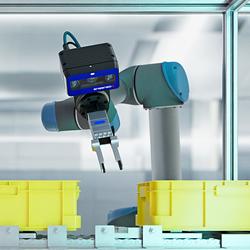UltraFlex performing induction nanoparticle heating for medical research purposes
This UltraFlex test application setup confirmed that heating the biological unit containing nanoparticles, to the temperatures required could be successfully accomplished and induction heating is the only option to be used.
The successful usage of induction to heat nanoparticles injected in biological units has recently been demonstrated by UltraFlex Power Technologies. UltraFlex is a major provider of advanced, digitally controlled induction heaters and its high-frequency induction heating equipment is often the preferred choice for research purposes. UltraFlex will design and manufacture the perfect coil to induce the desired field-strength or heat for any high-frequency application.
In this application case, a Korean Institute of Science and Technology, specializing in medical research, has reached out to UltraFlex to evaluate the option to heat Nano magnetic material injected in biological units.
Electromagnetic nanoparticle heating is a process where external electromagnetic fields interact with the electrical and magnetic properties of nanoparticles. One of the common applications of nanoparticle heating is related to cancer treatment, where high temperature (hyperthermia) is used to destroy tumors.
For this customer scenario, UltraFlex designed a custom induction coil, so that the required magnetic field strength of 7.5 kA/m at 570 kHz or 15 kA/m at 350 kHz could be achieved. The magnetic field strength is a key parameter when heating nanoparticles. Hence, UltraFlex created different simulation setups, based on which the best design for the custom induction coil was determined. The simulations are a complex process with many calculations and measurement procedures, but they confirmed that the induction coil designed could achieve a magnetic field strength of 11 kA / m at 400 kHz with uniformity of 10% throughout the heating process.
The induction heating equipment used by UltraFlex was their proprietary N-Series Nanoparticle Research Systems. The Nanoparticle Research Systems are ideal for magnetic hyperthermia and other applications. With a variety of power and frequency levels available, these systems will provide the magnetic field strength needed for the customer's application.
This UltraFlex test application setup confirmed that heating the biological unit containing nanoparticles, to the temperatures required could be successfully accomplished and induction heating is the only option to be used. Despite the complexity of this test induction heating setup, it proved the importance of induction heating for medical research. Moreover, induction heating allows for time- and cost-efficient research application setup, which could often be critical for the success of the final project.
Featured Product

